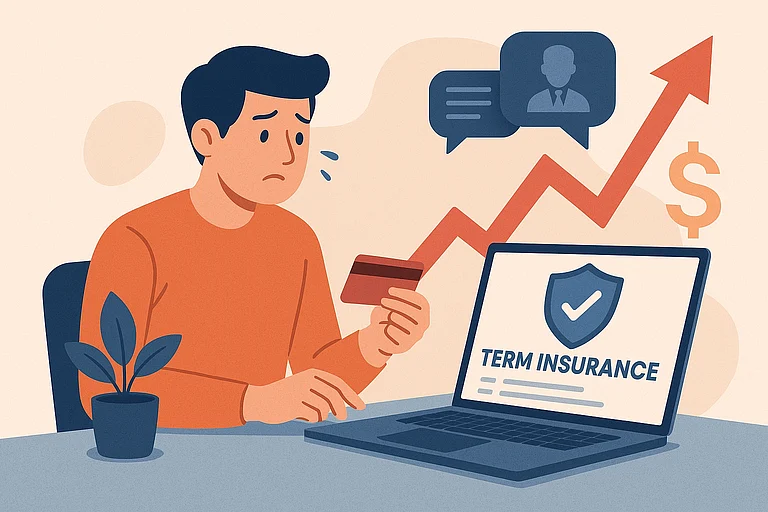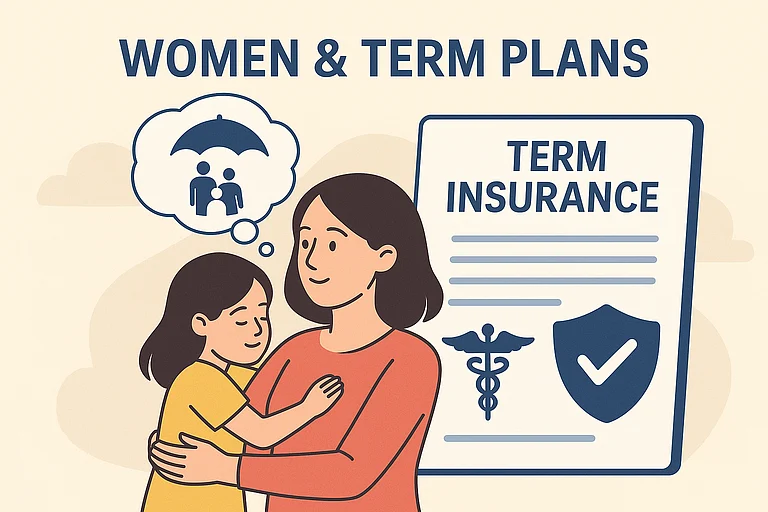When it comes to term insurance, most people assume it’s a long financial commitment — something that runs for 25, 30, even 40 years. However, not everyone wants that kind of ongoing burden. For many, the goal is simple: secure a large cover now, finish paying for it in the next few years, and get on with other priorities.
That’s where limited pay term insurance steps in. Unlike regular term plans where you keep paying premiums every year to keep the policy alive, limited pay plans compress the payment schedule into a shorter window, usually five, 10 or 15 years, while keeping the life cover running for decades after.
In other words, you stop paying, but your insurance doesn't stop working.
What Makes Limited Pay Different?
Let’s say you are 30 years old and buy a 30-year term policy. Under a regular pay structure, you will make payments until you are 60. But under a limited pay plan, you could opt to pay for just 10 years. The cover, however, will continue till the end of the policy term, just like a regular plan.
The appeal here is obvious. If your income is stable now and you have the flexibility to front-load your financial responsibilities, why not wrap them up while you can? This is especially useful for people with specific financial goals: those who want to be premium-free by the time their children enter college, or before stepping into early retirement.
Is There a Catch?
Not really, according to Varun Agarwal, head of term insurance at Policybazaar.com.
He says: “There’s no downside of limited pay term insurance plans, as they offer up to 45 per cent savings on total premiums paid. Additionally, these plans reduce the risk of policy lapse, since payments are completed early while coverage continues.”
If you compare the total premiums paid under a limited pay versus a regular pay term plan, the savings can be significant, despite the annual premiums being higher in the limited pay structure. That's because you’re paying for fewer years.
Can You Switch Later?
If you have already bought a regular pay term plan and wish to switch to limited pay, some insurers do allow this conversion. Says Agarwal: “Yes, insurers allow converting a regular pay plan into a limited pay plan even after purchase.”
The premiums for limited pay are determined by the insurer and the discounts and payment options, too, are structured in line with their internal risk models.
The limited pay term plans eliminate future uncertainty, such as a sudden job loss, business slowdown, or medical emergency in your 50s, and will ensure they will not jeopardise your policy if you have already completed your payments a decade earlier.
Who should consider it?
It is also important to understand that limited pay term plans are not for everybody. It can be taken by:
People in their peak earning years who can comfortably afford higher premiums now in exchange for no premiums later.
Self-employed professionals or business owners who want to front-load financial commitments
Individuals who are planning an early retirement or a planned sabbatical later in life
People who are prone to irregular income in later years, such as freelancers or gig workers
People who do not want to think about paying regular insurance premiums, say for 20 years, and want to secure their life insurance by paying off premiums early.
But do remember: while limited pay offers freedom from long-term payments, it does mean shelling out more per year during the premium-paying phase. It’s not for everyone, especially if your current cash flows are tight or unpredictable.
Conclusion
A limited pay term insurance plan is essentially about buying peace of mind early by paying more upfront, and not worrying about it. For those who can afford the higher annual premiums now, it can be a neat way to get one major financial chore out of the way. And in a world where future-proofing your money decisions is becoming more important than ever, it’s one option worth weighing carefully.














